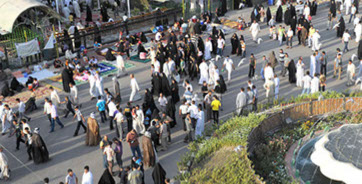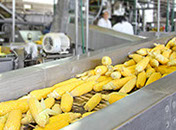About Halal

Muslims around the world follow the practice of Islam which includes observing dietary laws from Islamic teachings. Islamic dietary laws define foods that are Halal, meaning lawful or permitted. Muslims avoid food and beverages that are Haram, meaning not permitted.
Many foods are clearly Halal or clearly Haram. However, certain foods are difficult to classify because of the ingredients they contain. Our Halal Certification Bodies (HCB) will be providing assessment, auditing and training services to assist ingredients, food products, pharmaceutical and cosmetic manufacturers to cater for the local market needs. In addition, Halal certification can enhance the marketability of products and services to over 1.8 billion Muslim consumers in 161 countries worldwide.
What is Halal

According to the Holy Qur-an and the Traditions of the Prophet Mohammad (Peace be upon Him), Halal or Permissible in English term had primordially started from the first creation of Human being during the Time of Adam and Eve (Peace be upon them) when they were permitted to enjoy in temporary paradise of Eden for any foods, wine, honey, fresh milks and waters, fruits, meats, green vegetables and other delicacies suited to their needs and wants during their stay, but they were forbidden for one thing and it is that they were not allowed to approach the forbidden tree " Sajaratul Yakiin" as it was named and called in the holy Qur-an and the Tradition or Sunnah of Prophet Muhammad (Peace be upon Him).
As a Muslim, the children of Adam and Eve should start Halal from the food he ate, to the money he earned, to his relationship with God and fellow human beings and to his sincerity do good deeds and avoidance of bad deeds and intentions to others and most especially to the whole Creation on earth. With regards to Halal foods and other ingredients, we should make sure that they are not contaminated with swine or pig fats, dog fats and other forbidden animals mention in the Shariah Islamic Standards and even the personal wears like leather pants, dress, jackets and bags should be made only from the skin of Halal animals like Camels, Cows and buffalos, goats and other sheep mentioned in the Holy Qur-an.
Global halal market


Rapid growth and interest in Halal food has captured significant attention from the food industry. According to the World Halal Forum, the global Halal food and beverage trade is currently estimated to be around USD 1.4 trillion annually (Farouk, 2013).
The Halal food market is currently worth an estimated 16% of the total global food industry with Asia, Africa and Europe accounting for 63%, 24% and 10% respectively. A growing Muslim population, as well as growing economic development and disposable income in Muslim countries, are considered to be the main drivers of Halal growth, while Halal has become the world’s biggest brand (in Farouk, 2013). Worldwide the number of Muslims has been calculated as 1.62 billion, representing 23.4% of an estimated 2010 world population of 6.9 billion. Europe’s Muslim population is currently estimated at 44.1 million Muslims, 2.7% of its total population and is younger and growing faster, as a whole, at a rate of 1.8% per year (in van der Spiegel, 2012).
Survey-type studies have shown that 75% of Muslims living in the US and 84% of Muslims in France always eat Halal meat. Religion is not thought to be the sole motive for adhering to religious dietary requirements, such as Halal. Health, respect for animal welfare and a degree of acculturation have also been noted as important drivers (in Bonne and Verbeke, 2008).
Muslim customer needs

The retail exploitation of the Muslim market segment has been delayed by a lack of insight into Muslim food purchasing and consumer behaviour. Furthermore, confusion over Halal specification and certification schemes, as well as the lack of Halal food chain logistics hinders the effective traceability and authenticity of Halal products, especially meat. The recent incidence of pork DNA found in Halal school and prison meat in the UK earlier in the year highlighted the high risk of cross-contamination and the lack of effective control measures in the Halal food chain, which is as long and complex as any other food chain. The most common cases of fraudulent adulteration of Halal meat involve the substitution of meat tissue with collagen and offal, as well as using pork fat in place of other animal fat. The problem also extends to the use of cheap pork proteins and mechanically recovered meat (MRM) from pig carcasses.
Halal is a process associated with religious belief and as such it would be difficult to control and guarantee. From the consumer point of view it is difficult to evaluate and verify even after consuming the product. Therefore, consumers have to largely rely on the seller and/or trust the information provided on the product label to guide their purchase. In the case of Halal, such trust on product labelling would be all about the halal process attributes including handling and safety. The latter has been linked with the effectiveness of the slaughtering process leading to complete animal bleed out therefore ensuring that blood, a potential source of bacterial contamination is removed, resulting in healthier meat.
Muslim consumers increasingly desire and demand the adoption of a quality assurance approach that guarantees the Halal process standards. Such an approach would require a formal certification and labelling strategy to reassure consumers of the quality and authenticity of halal meat and improve shopping convenience and choice. Halal certification is not yet globally standardised but its need is internationally recognised. Apart from its religious significance and its ‘seal of quality’ perception amongst consumers, Halal certification provides reliable and independent authentication, a means of claim substantiation. ‘Authentic Halal’ is a cause of controversy amongst certifying bodies and Muslim countries, as Halal is widely defined by the choice and effectiveness of stunning methods used in animal slaughter.
Halal standard
According to EU legislation (EC/93/119, and EC/1099/2009 that came to effect on 1st January 2013) stunning before slaughtering is a mandatory requirement in Europe and is performed to ensure that the animals are unconscious, ensuring slaughter doesn’t cause them anxiety, pain, suffering and distress. This legislation has caused significant dispute amongst Muslims as there is the concern that stunning could also kill animals prior to slaughter or make them suffer. In many EU countries, religious slaughter is exempt from stunning in line with the religious freedoms granted by Article 9 of the EU Convention on Human Rights. Hence, slaughter without stunning is carried out in licensed slaughterhouses or during religious festivals to ensure that the animal is healthy and has suffered no injury prior to slaughter. This conflict around animal protection prior to slaughter is guided and affected by the different perceptions of what constitutes ‘authentic Halal’. In turn, this prevents the development of a global Halal standard and hinders harmonisation. For example, the Malaysian standard that initially identified stunning as “not recommended” was revised in 2009 to include a reference to pre-slaughter stunning under certain conditions. Despite the differences, both the pre-stun and non-stun approaches have been embraced by major UK retailers selling meat from both pre-stunned and non-stunned animals in their stores and food outlets in an attempt to respond to their customers beliefs.
It is estimated that there are currently around 122 active Halal Certification Bodies around the world, including local government departments that have taken charge of Halal certification in countries such as Malaysia, Indonesia, Singapore, Thailand and the Philippines. It is believed that global politics and government involvement may discourage a general consensus on a harmonised Halal certification approach, as each country is attempting to establish themselves as the global hub for Halal certification based on their own national and regional interests.
A recent attempt to harmonise Halal standards has been made by the Organisation of Islamic Cooperation (OIC) that appointed the United Arab Emirates (UAE) chair of the technical committee for Halal food and cosmetics. UAE was given the task of producing a unified standard that would be applied across all 57 Islamic countries within the next three years (e.g. Halal Focus, 2012). Such an initiative has already been met with scepticism, but if successful, it is believed that it will act as a further boost to the global Halal market.
In view of the disputes previously mentioned, available options for the development of a global Halal standard seem to be limited and would involve either an element of compromise, or acceptance of the diversity and differences amongst the different Islamic ‘schools of thought’ and likely to consolidate only a few standards.
As a leading provider of certification, verification, inspection and testing with a global reach, we are happy to discuss your Halal certification, training or other requirement anywhere in the world. STC currently offers halal certification according to the UBP standard. This is a Halal quality standard developed by Muslims and food experts. Audits are exclusively carried out by expert Muslim auditors, such as veterinarians, food technologists and agricultural scientists, accompanied by members of Muslim institutions, to assess compliance against Halal requirements.


© 2015 UBPS. All Rights Reserved.